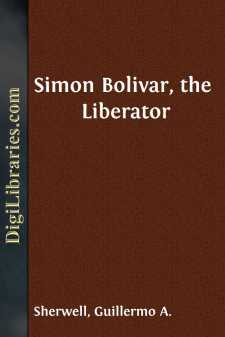Categories
- Antiques & Collectibles 13
- Architecture 36
- Art 48
- Bibles 22
- Biography & Autobiography 816
- Body, Mind & Spirit 145
- Business & Economics 28
- Children's Books 18
- Children's Fiction 14
- Computers 4
- Cooking 94
- Crafts & Hobbies 4
- Drama 346
- Education 58
- Family & Relationships 59
- Fiction 11834
- Foreign Language Study 3
- Games 19
- Gardening 17
- Health & Fitness 34
- History 1378
- House & Home 1
- Humor 147
- Juvenile Fiction 1873
- Juvenile Nonfiction 202
- Language Arts & Disciplines 89
- Law 16
- Literary Collections 686
- Literary Criticism 179
- Mathematics 13
- Medical 41
- Music 40
- Nature 179
- Non-Classifiable 1768
- Performing Arts 7
- Periodicals 1453
- Philosophy 66
- Photography 2
- Poetry 897
- Political Science 203
- Psychology 45
- Reference 154
- Religion 516
- Science 126
- Self-Help 86
- Social Science 82
- Sports & Recreation 34
- Study Aids 3
- Technology & Engineering 59
- Transportation 23
- Travel 463
- True Crime 29
Our website is made possible by displaying online advertisements to our visitors.
Please consider supporting us by disabling your ad blocker.
Simon Bolivar, the Liberator
Description:
Excerpt
Introduction
In the history of peoples, the veneration of national heroes has been one of the most powerful forces behind great deeds. National consciousness, rather than a matter of frontiers, racial strain or community of customs, is a feeling of attachment to one of those men who symbolize best the higher thoughts and aspirations of the country and most deeply impress the hearts of their fellow citizens. Despite efforts to write the history of peoples exclusively from the social point of view, history has been, and will continue to be, mainly a record of great names and great deeds of national heroes.
The Greeks, for us and for themselves, are not so much the people who lived in the various city-states of Hellas, nor the people dominated and more or less influenced by the Romans and later the Mohammedan conquerors, nor even the present population in which the old pure Hellenic element is in a proportion much smaller than is generally thought. Greece is what she is, lives in the life of men and shapes the minds and souls of peoples, through her great heroes, through her various gods, which were nothing but divinized heroes. Greece is for us Apollo, as a symbol of whatever is filled with light, high, beautiful and noble; Heracles for what is strength, energy, organization, life as it should be lived by human beings. Leonidas stands for us as a symbol of heroic deeds; Demosthenes as a symbol of the convincing powers of oratory and Pericles as the crystallization of Grecian life in its totality of beauty, learning and social and civic life. Greece is a type, is an attitude, is a protest against oppression, is an aspiration towards beauty, is an inspiration and a guide for men who live in the higher planes of feeling and thought. But Greece is not all that as a people; Greece is all that through men converted into symbols.
So it is with other peoples.
Rome still signifies for us the defense of the bridge against the powerful enemy; a man taking absolute power over the State and then surrendering it to the people from whom it came. Rome is Repúblican virtue, and imperial power,—and also, alas! imperial degradation. Imperial Rome represents persecution of religion which does not recognize Caesar as a god and the assimilation of religions which do not hesitate to add a god to those they adore. Rome, too, symbolizes the tendency to unity which survives and inspires the life of the nations of Europe, if not of the world,—a tendency altogether manifest in the last gigantic struggle through which mankind has just passed. Rome, finally, stands for Law, for the most marvelous social machine ever devised by human brains. But Rome is all that, and more than that, through Horace, Sulla, Cato, Caesar, Cicero, Nero, Caracalla and Justinian.
The confusion of the Middle Ages has some points of light, always around a man. The great Frederic Barbarossa stands for Germany, as does William Tell for Switzerland, as Ivan the Great for Russia, as the Cid for Spain, as King Arthur for England and Charlemagne for France....


